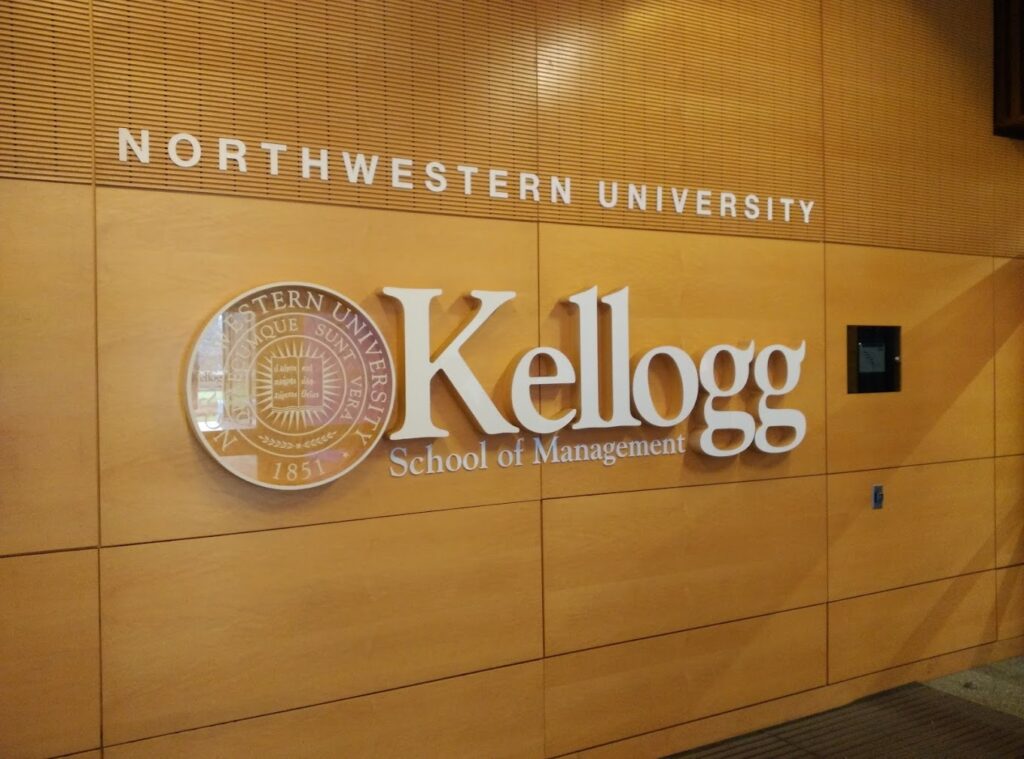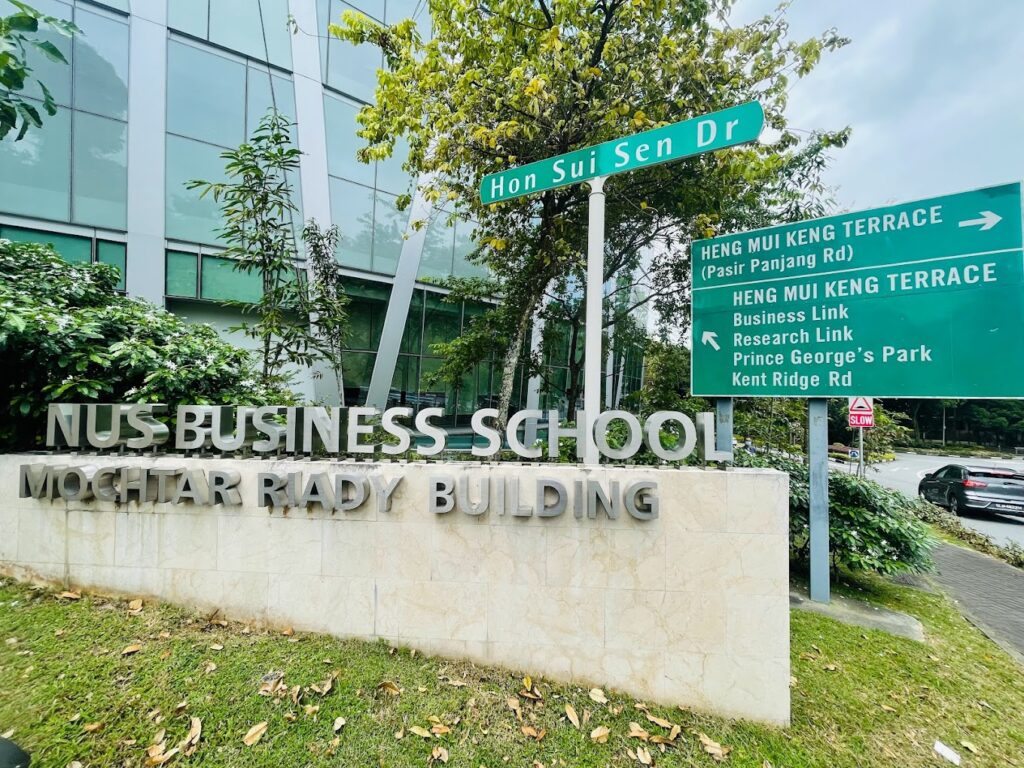Growing demand for MIM creates an innovative and eager mindset in early career professionals and recent graduates to pursue MiM programs without GMAT since there is a greater need for them. In contrast to typical MBAs, these programs provide holistic admissions, a gateway into the world of business and management without having previous professional experience with management degree flexibility. One important trend for 2024 is the increasing number of MIM programs without GMAT requirements, with broader applicant access to a wider variety of candidates. This move has provided opportunities for non-traditional students, early-career professionals, and those wanting a more flexible admissions procedure, resulting in holistic admissions that prioritize management degree flexibility and greater candidate availability.

Why many MIM programs are waiving GMAT?
The shift towards holistic admissions
The change to holistic admissions has emerged as a prominent trend in MIM programs. Several causes have led to MIM without GMAT, including the pandemic, which forced several institutions to reconsider their admittance practices. With the increased need for greater inclusion and accessibility, several institutions have determined that a No GMAT MIM program may provide a more comprehensive review of candidates.
To determine an applicant’s preparedness, universities now consider factors such as academic performance, professional experience, leadership potential, and personal statements. This strategy highlights the capabilities of individuals from various backgrounds, allowing them to demonstrate their talents and experiences rather than relying primarily on standardized test scores. The Master of Management without GMAT trend not only enhances accessibility.
Top MIM Programs without GMAT
If you’re looking for a MIM programs without GMAT, numerous famous institutions provide programs that do not require this standardized test. Here are some of the top choices for Masters in Management without GMAT:

1. Imperial College Business School
- Location: London, United Kingdom
- Ranking: Ranked 6th in the world in the QS World University Rankings
- Program highlights:
- Reputation and Ranking: Imperial College Business School is noted for its strong academic standards and is frequently regarded as one of Europe’s best business schools.
- Curriculum: The program includes a combination of basic management courses and electives, allowing students to adapt their education to their specific professional aspirations.
- Career Services: Workshops, networking events, and individualized career coaching are provided. Students benefit from the school’s links to worldwide companies, particularly in consulting, finance, and technology and program diversity.
- Worldwide Exposure: The program attracts students from a variety of backgrounds and offers a worldwide learning experience.
- Duration- 12 Months
- Tuition fees – £31,800
- GMAT Waiver Policy: GMAT is not mandatory; candidates are assessed based on their academic records and professional potential.
2. UCL School of Management

- Location: London, UK
- Rankings: 3rd in UK rankings
- Program Highlights:
- Location: London, United Kingdom. Because of its location in a major commercial hub, students have access to various networking and internship possibilities.
- Syllabus: Combines fundamental management courses with electives based on industry trends.
- job Support: Gain access to UCL’s worldwide alumni network and excellent industry relationships for job placements.
- Duration: 1 Year
- Tuition fees: £35,100
- GMAT Waiver Policy: GMAT is optional, with a greater focus on previous academic performance and work experience. Strong academic background is essential
3. Warwick Business School

- Location: Coventry, UK
- Rankings: 11th in Europe
- Program highlights:
- Location: Coventry, UK, with a global vision and foreign experience gained through study tours.
- Syllabus: A combination of core and optional courses, with an emphasis on strategic management and decision-making abilities.
- Career Services: Provides comprehensive help, including career coaching and connections to top employers.
- Duration: 1 year
- Tuition fees: £33,250
- GMAT waiver: GMAT is not mandatory for admission but can strengthen an application. Strong academic performance, particularly in quantitative subjects, can serve as an alternative.
4. Kellogg School of Management

- Location: Evanston, Illinois, USA.
- Rankings: 11th in world
- Program highlights:
- Location: Evanston, Illinois, in the United States, is near Chicago. The location provides access to a bustling commercial community.
- Curriculum: A combination of key business disciplines and leadership development, with an opportunity for hands-on learning through real-world projects.
- Career Opportunities: Kellogg provides strong job placement help, as well as access to its worldwide alumni network and business relationships.
- Duration:1 year
- Tuition fees: $60,000-65,000 USD
- GMAT waiver policy: Kellogg provides GMAT exemptions on a case-by-case basis, taking into account good undergraduate achievement, relevant professional experience, or other advanced degrees.
5. National University of Singapore(NUS) Business School

- Location: Singapore
- Rankings: 22 in World
- Program highlights:
- Location: Singapore. As Asia’s primary economic hub, it provides several possibilities for networking and internships with worldwide organizations.
- Curriculum: focuses on building global business skills via courses suited to the changing Asian market.
- Career Support: Gain access to NUS’s extensive alumni network and excellent relationships with area companies.
- Duration:18 Months
- Tuition fees: SGD 45,000-50,000 (approximately $33,000-37,000 USD)
- GMAT waiver policy: The GMAT is not required for admission. Candidates are examined based on their academic performance, employment experience, and general profile.
Admissions Criteria for MIM Programs without GMAT.
What admission committees look for?
When applying for a Master in Management MIM programs without GMAT, it’s critical to understand what admissions committees prioritize:
- GPA: A high academic record is important since it displays your ability to manage a challenging curriculum.
- Showcase Certificates: Pursuing quantitative and field-related extra courses acts like a brownie point while applying.
- Work Experience and Internships: While not always required, relevant internships or professional experience might help boost your application and built your confidence to face the difficulties in a prolific way.
- Letters of Recommendation (LOR): Select recommenders who can speak to your potential for success in a management position.
- Statement of Purpose (SOP): Clearly express your objectives, professional ambitions, and how the MIM program fits into your plans.
- Interview Performance: Before the interview, focus on your unique experiences, leadership characteristics, and program preparation, and enhance your knowledge about the field.
By focusing on these holistic admissions criteria, you can position yourself as a strong candidate for MIM programs without GMAT.
Alternative strategies to strengthen your MIM programs without application
- Gain relevant Internship experiences/startup- experience: If you are aiming for a career in this field, it would be better if you take experiences from finance, and business fields along with good short-term projects. This helps in management career prep.
- Certifications for MIM and online courses: Certification courses can bolster your profile, it demonstrate your commitment to self-improvement.
- Engagement with Alumni: Connect with your Alumni to gain first hand review and there experiences can help you build your application strong and more appealing along with strong LinkedIn profile will also help.
- Leadership or Volunteering Experiences: Showcase the leadership roles you have held as a student in an organization or clubs. Add your volunteering experiences which expresses your balance for academic and community management. This will make you stand out in the application process.
- Develop a global perspective and cultural awareness: Diversification in your experiences highlights your application. It makes you stand out in the admission process.
Comparing MIM programs Without GMAT vs. MBA
MIM or MBA Which is right for you?
MIM Vs MBA
When deciding between a Master in Management (MIM) vs Master of Business Administration (MBA), it’s critical to understand the distinctions between the two programs and how they fit with your professional objectives, job experience, and growth prospects. Below is a full comparison to help you determine which path is best for your career development.
Career objectives
Master in Management (MIM)
- MIM an early- career professionals programs which is designed for people who are just starting their careers. The syllabus usually incorporates foundational business topics such as finance, marketing, strategy, and organizational behaviour.
- Early-career management degree, fresh graduates, and people with less formal job experience. It’s great for people who want to create a solid foundation in management before entering the job market.
Masters of Business Administration:
- MBA programs are benifited for those who want to enhance their current jobs into senior leadership or specialized roles. The syllabus is more advanced, focusing on strategic management, leadership, and specialized areas such as mergers & acquisitions or global business.
- Mid-career professionals with many years of work experience want to advance in management, change industries, or improve their leadership abilities.
Work experiences requirement
MIM programs
- Minimal or no work experiences: Most of the MIM programs are planned for applicants with less to no job experience, mostly ranging from zero to two years. They put academic performance and undergraduate achievements as primary concerns.
MBA programs
- Work experience is essential: MBA schools typically need three to five years of professional experience, with some anticipating considerably more. This experience is important since MBA classrooms frequently include case studies and debates, and students’ real-world experiences augment the learning process.
Growth opportunities and return on investments
MIM programs without GMAT: Rapid entry into the workforce
- MIM graduates mostly begin in junior managerial roles, but their skills and networks enable fast development. The degree is highly recognized in Europe and Asia, where MIM programs are most common.
MIM programs offer high-quality business education at a lower cost compared to MBA schools. - Early career opportunities in consulting or strategy might provide a high return on investment (ROI). It’s a faster, more cost-effective approach to get into managerial positions without making a significant financial investment.
- Some MIM programs include foreign opportunities, internships, or consulting assignments to assist students get practical experience.
MBA: Long-term career advancement
- MBA graduates often earn higher salaries and advance to leadership positions faster than those without the degree. It provides opportunities for C-suite positions, entrepreneurship, and specialized professions such as investment banking, strategy consulting, and technology leadership.
- MBA programs may be expensive, particularly at prestigious colleges. Nevertheless, many graduates believe it is worth it because of the tremendous job gains it may provide.
MBAs provide long-term benefits, including high-paying jobs and access to alumni networks. - The ROI for MBA graduates often earn higher salaries and advance to leadership positions faster than those without the degree. It provides opportunities for C-suite positions, entrepreneurship, and specialized professions such as investment banking, strategy consulting, and technology leadership.
Suitability for early career vs mid-career candidates
- MIM programs without GMAT are ideal for early-career candidates.
- The MIM is intended for those who are at the start of their professional careers. Its curriculum is designed to give a wide grasp of business and management ideas, allowing recent graduates to easily transfer into the corporate sector.
- Internships, consultancy projects, and case studies provide MIM students with industry-specific information at an early stage.
MBA: Ideal for mid-career professionals.
- The MBA is perfect for experienced professionals seeking to hike to senior management or leadership positions.
- It focuses on strategic decision-making, leadership, and specialized fields such as finance and operations.
- MBA programs frequently offer experiential learning opportunities including as consulting assignments, global immersions, and leadership workshops, which are designed to provide students with a greater understanding of the business world.
Advantages of starting MIM or Management consultancy
- MIM programs without GMAT are ideal for students who wish to start a career in management or consulting without having to earn years of job experience first.
- The curriculum provides students with abilities that are immediately usable in positions such as business analyst or junior consultant.
- Flexibility to Pursue an MBA Later: Many MIM graduates choose to pursue an MBA later in their careers when they want to advance to executive roles or change careers.
- Having a MIM might help students transfer to an MBA more smoothly because they are already familiar with key business ideas.
- MIM programs frequently emphasize personal growth, intercultural communication, and cooperation. This might be useful for young professionals looking to improve their soft skills early in their careers.
- Networking possibilities: While a MIM’s alumni network is not as large as that of an MBA, it nevertheless provides excellent networking possibilities, particularly with peers at comparable stages of their careers.
Choosing between a MIM and an MBA is determined by your career stage and professional ambitions. If you are just starting off and want to obtain a wide grasp of management, a MIM is a wonderful option. However, if you already have professional expertise and want to advance or change your career path, an MBA may be the perfect choice for you.
Frequently Asked Questions (FAQs)
FAQs
Tips to succeed in the Application process.

Application Success without GMAT: Pro Tips
Network with graduates and Alumni: Contact current students or graduates to learn more about the program. Connecting with alumni is one of the most effective methods to gain insight into a program’s culture and ideals.
- Reach out via LinkedIn, virtual alumni gatherings, or alumni groups. This might help you understand what the school looks for in candidates and how you can fit your profile with their expectations.
- Alumni may offer guidance on how to write a convincing Statement of Purpose (SOP), what to include on your CV, and how to prepare for interviews. They may also give advice for sticking out throughout the admissions process based on their personal experience. This application tips enhances the application.
Attend Webinars/Seminars: Many institutions host webinars to provide information about their programs and application suggestions. Schools frequently use webinars, virtual open days, and information sessions to present potential students to their programs.
- These events provide an excellent opportunity to learn about the curriculum, professors, student life, and the application process.
- Participating in these sessions allows you to focus your enquiries to admissions personnel or existing students. It also allows you to introduce yourself to the admissions staff and demonstrate your willingness to participate in the program.
Customize your SOP: Customize each SOP to represent why you are a good fit for the particular program.
- A generic SOP will not cut it, particularly when applying to competitive programs. Customize your SOP to reflect how each program is individually suited to your professional goals.
- Highlight key elements of a school, such as its teaching methods, renowned professors, or the sorts of experiential learning opportunities (e.g., internships, consulting assignments) that interest you.
- Demonstrate alignment: Consider how your history, aspirations, and beliefs connect with the school’s mission statement. For example, if the program emphasizes entrepreneurship, talk about your business ideas or aspirations. This sets you apart as a candidate who is a good match for the program and will help you with successful MIM applications.
- Authentic and goal-driven: Admissions committees may quickly see when candidates are inflating their accomplishments or tweaking their statements excessively. Instead, be open about your experiences, even if they appear minor.
In today’s competitive educational scene, MIM programs without GMAT are becoming widely famous because of their flexibility and accessibility. These programs offer the perfect chance for individuals who may not have the time, finances, or desire to study for standardized examinations but are willing to pursue a management degree from a renowned university. The move towards holistic admissions enables colleges to evaluate candidates based on their unique experiences, academic background, leadership potential, and professional objectives rather than just test results.
MIM programs without GMAT requirements might be an excellent starting point for early-career workers, non-traditional entrants, or those seeking a more accessible road into management school.
Apply with trust and seize your future.
If you’re willing to pursue a Master of Management but are put off by the prospect of taking the GMAT, now is the time to take advantage of these GMAT-free options. With the right approach—tailoring your application, emphasizing your talents, and actively connecting with your selected schools—you can increase your chances of admission and take a confident step ahead in your career.



